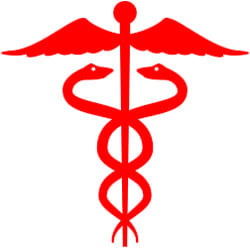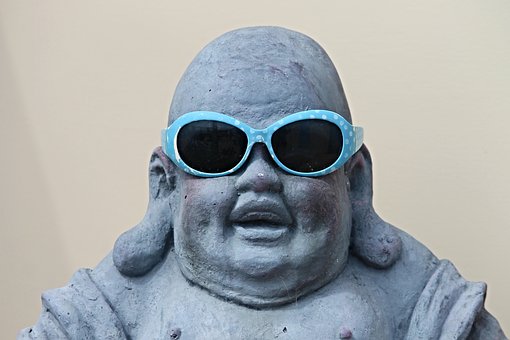Whether you were born in 1940 or 2010, if you are a music lover, and your mind is open to great music it's difficult to hear a song coming out of different eras and not stop for a minute and listen. Especially if there is a voice or voices that convert into melodious sounds backed by rich instrumentation. Added to that is a message that might appeal to your current situation or someone you know. Music, whether is pure instrumental or its accompanied by voices has had a profound impact on people's lives throughout history in spite of language or cultural differences. An example of this would be the O'Jays an American R&B group from Canton, Ohio and has made a significant impact on the music industry with their soulful sound. Their music has gained worldwide popularity for decades.
In this, and future issues we'll look at the body of work done by the O'Jays( Walter Williams, Eddie Levert and William Powell). This trio has recorded a series of hits over the years. This week we'll look at "Forever Mine" The intro (organ, piano, bass and lead guitar and gentle tapping on drums) is soothing. This slow jam, tempo continues throughout the song backed by brass sitting in the background and adding to the foundation of the music. A timeless classic that celebrates enduring love and leaves an indelible mark on the R&B genre.
Walter Williams slides in with the opening lines then Eddie Levert adds his power voice to emphasize his deep love and also add libs at times. The trio them harmonize to add more purity to their musical talent. Listen and be thrilled.
Forever Mine
Forever mine
All because you're my kind
I got what you want, you got what I want
And we were made for each other(oo-oo)
Forever mine
And I'm so glad
' Cause it gets better with time
Oh girl
I like what you like , you like what I like
And we were made for each other
Oh baby
You are that someone I've been hoping for
I've been looking for all my days
Don't you ever think about leaving
This heart of mine would be grieving
Don't go....stay...stay
Forever mine
Aw we're, we're one of a kind
Mmm, oo-oo baby girl
I need what you need, you need what I need
And we were made for each other
Oo-oo girl
Oh baby
I wanna love you
Love you so, make it good
Right down to the bone, to the bone
"Cause it's you I'm thinking about pleasing
Give you all the love you're needing
Don't go, (please) stay(stay) stay
Forever mine
'Cause you and me, we get along just fine
Aw baby
I got want you want(good love)
You got what I want( good loving)
And we were made for each other
Aw we've been around
And I've had a lot of loves
And I know you've had a lot of loves, too
But I ain't never had nobody
That do the things you do
We go together
Well like the birds in the trees
I'd be in a round of trouble girl
If you wasn't her with me, stay
Repeat some verses.
Writers: Leon Huff/ Kenneth Gamble
© 1980 Philadelphia International Records.
In this, and future issues we'll look at the body of work done by the O'Jays( Walter Williams, Eddie Levert and William Powell). This trio has recorded a series of hits over the years. This week we'll look at "Forever Mine" The intro (organ, piano, bass and lead guitar and gentle tapping on drums) is soothing. This slow jam, tempo continues throughout the song backed by brass sitting in the background and adding to the foundation of the music. A timeless classic that celebrates enduring love and leaves an indelible mark on the R&B genre.
Walter Williams slides in with the opening lines then Eddie Levert adds his power voice to emphasize his deep love and also add libs at times. The trio them harmonize to add more purity to their musical talent. Listen and be thrilled.
Forever Mine
Forever mine
All because you're my kind
I got what you want, you got what I want
And we were made for each other(oo-oo)
Forever mine
And I'm so glad
' Cause it gets better with time
Oh girl
I like what you like , you like what I like
And we were made for each other
Oh baby
You are that someone I've been hoping for
I've been looking for all my days
Don't you ever think about leaving
This heart of mine would be grieving
Don't go....stay...stay
Forever mine
Aw we're, we're one of a kind
Mmm, oo-oo baby girl
I need what you need, you need what I need
And we were made for each other
Oo-oo girl
Oh baby
I wanna love you
Love you so, make it good
Right down to the bone, to the bone
"Cause it's you I'm thinking about pleasing
Give you all the love you're needing
Don't go, (please) stay(stay) stay
Forever mine
'Cause you and me, we get along just fine
Aw baby
I got want you want(good love)
You got what I want( good loving)
And we were made for each other
Aw we've been around
And I've had a lot of loves
And I know you've had a lot of loves, too
But I ain't never had nobody
That do the things you do
We go together
Well like the birds in the trees
I'd be in a round of trouble girl
If you wasn't her with me, stay
Repeat some verses.
Writers: Leon Huff/ Kenneth Gamble
© 1980 Philadelphia International Records.













































